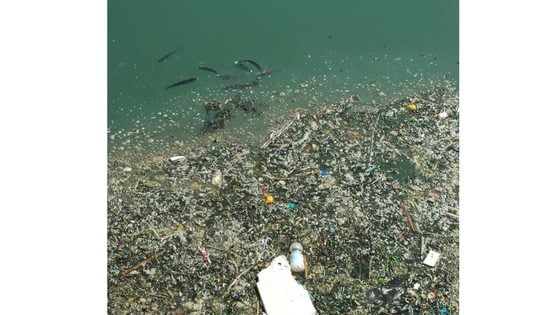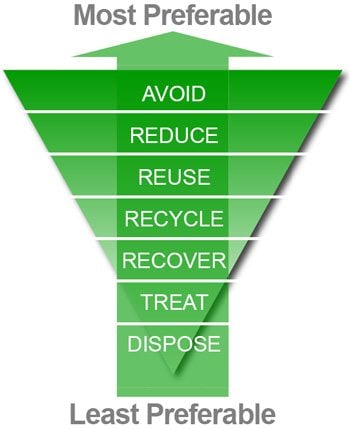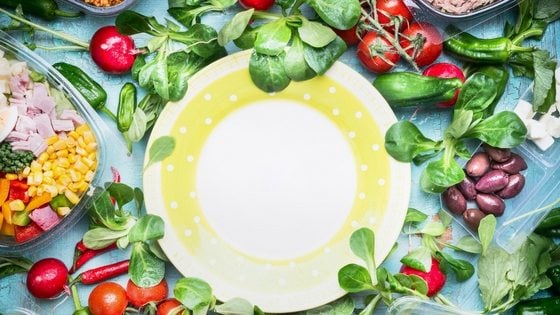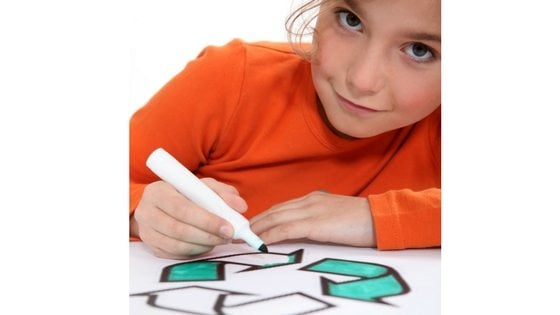
Waste Reduction Services: Why Reducing Plastic Garbage May Save The Planet 🌏
Waste Reduction Services 🌏: If you read the title of this blog, you may even think it is a bit over the top. You may even be thinking, “Waste reduction – yeah, sure”. You are self-serving by trying to sell bins, of course!
However, in today’s blog, we want to take a slightly different approach.
Usually, I am super positive about how recycling and using smart bin processes can really help the environment.
Today, I am a little less positive and want to explain to you why I think we need to take drastic measures in Australia and globally.
>>Download Now: Free PDF Business Owners Guide To General Waste Bin Services
We are turning our wonderful planet into plastic and we need to get serious about waste reduction!
In Australia, we are increasingly urban dwellers. Our dear friends at the CIA tell us it is almost 90% now.
As a society, we have moved away from our rural roots and are becoming increasingly detached from wildlife – both on land and at sea.

Our only real contact with ocean life is on our plates, at the beach or on a tv doco. The alarming thing is that, as we give huge attention to global warming (of course, a valid topic), the much more pressing issue of plastic pollution is really getting out of control.
We have blogged on the topic a lot recently. To be honest, I find that all I am talking about these days is plastic pollution, recycling plastic and trying to reduce plastic waste reduction.
How bad is the problem?
In straightforward terms, the problem is quite terrible, and we need waste reduction services, as a result.
We recently blogged that by 2050, there will be more plastic in the sea than actual marine life by weight. Mental! Also, we blogged on how plastic drinking straws stay around forever and kill turtles and other animals. Yet again, we blogged on how plastic basically takes forever to break down. This is honestly so heartbreaking, to say the least, as it continues to happen.
Today, I read an article about how plastic is basically seen as food by animals and how they are eating it in droves.

Why are fish eating plastic garbage?
The BBC reports that:
“At least 180 species of marine animals have been documented consuming plastic, from tiny plankton to gigantic whales. Plastic has been found inside the guts of a third of UK-caught fish, including species that we regularly consume as food. It has also been found in other mealtime favourites like mussels and lobsters. In short, animals of all shapes and sizes are eating plastic, and with 12.7 million tons of the stuff entering the oceans every year, there’s plenty to go around.”
But why are they eating it?
“The prevalence of plastic consumption is partly a consequence of this sheer quantity. In zooplankton, for example, it corresponds with the concentration of tiny plastic particles in the water because their feeding appendages are designed to handle particles of a certain size. “If the particle falls into this size range it must be food,” says Moira Galbraith, a plankton ecologist at the Institute of Ocean Sciences, Canada.”
This is a real issue – as some of the newer – “biodegradable” plastics simply break down into very small particles – almost making the problem worse!
However, it also appears that animals seem to simply “like” the smell and potentially taste of plastic!
“Specifically, they implicated dimethyl sulphide (DMS), a compound known to attract foraging birds, as the chemical cue emanating from plastic. Essentially, algae grow on floating plastic, and when those algae are eaten by krill – a major marine food source – it releases DMS, attracting birds and fish that then munch on the plastic instead of the krill they came for.”
It is argued by the BBC article that plastic is seen as food due to its colour, smell, shape, size and potentially taste. Different animals even favour different colours!
Basically, plastic has been around for only c.50 years and animals have no idea what it is.
If it looks like an apple and tastes like an apple, it must be…
Recycling is good but not nearly enough for this problem; we need waste reduction services first
See a video below from a TEDx talk on the incredible scale of our plastic waste issue (among others) and why we need to act in a real way now.

What we can do to bolster waste reduction services
We cannot achieve a total waste reduction in a day. One of the biggest issues in boosting recycling is that plastic is present in a whole range of items that you would not always expect.
If you watched the ABC TV show on the waste industry called “War On Waste” you will be aware of the huge issues caused by takeaway coffee cups.
Many people think the coffee cup is made of cardboard, and hence, should be easily recyclable. But in reality, it is made of numerous substances including cardboard and plastic.
This mixture of items means it is not bio-degradable and is very tricky to effectively recycle. Of course, the best solution is prevention rather than cure.
You can see great examples of use again coffee cups here.
How do you reduce waste?
The question of how to reduce waste as a nation is certainly not easy to answer. As an operator in the waste and recycling industry, we put most of our thinking into how can we recycle more. With this, we can easily provide various waste reduction services with the utmost efficiency.
However, in recent blogs, we have come round to another way of thinking.
Given the serious global problem of control plastic pollution (see our blog on the Great Pacific Garbage Patch), we are of the clear (and obvious) opinion that real prevention of pollution (and mostly plastic production) has to be the key. See our blog on how the Australian waste sector is in crisis.
Any good doctor will tell you that prevention is better than cure, and that is also true in reducing waste and pollution in our environment.
The Australian waste and recycling pyramid as below makes it clear that avoidance and reduction (i.e., waste prevention) are the most effective methods of preventing pollution, which Waster fully supports as a service provider.

In this part of the blog, we will cover the campaigns that can encourage major Aussie retailers and supermarkets to reduce plastic wrapping and have plastic-free aisles.
Additionally, we will also cover how businesses, the fairly new ones, can decrease their waste and recycling costs while increasing their flexibility.
Is reducing plastic the first step on how to reduce waste as a whole?
We have covered how recycling and current waste management methods are nowhere near sufficient. They are not enough to tackle the plastic pollution epidemic.
Basically, these are the answers to why we are having a hard time implementing ways to reduce waste.
This is due to numerous reasons:
- The cheapness of plastic – it is so cheap and convenient that consumers and retailers have favoured it.
- An appearance of being clean and fresh – it can be processed into numerous colours – and many people believe it keeps food away from germs etc.
- A lack of knowledge of the issues – very few people have even heard about the huge ocean pollution caused by plastic.
- A belief that it all gets recycled – when nothing could be further from the truth.

Why not just ban plastic as our first step in waste reduction?
At a very fundamental level, waste reduction in the first place is a much better solution than boosting recycling – not knocking on the importance of the service.
Even the most efficient recycling system will expend large amounts of energy in the process. There is also, of course, the real costs of transport.
Quoting from Popular Mechanics:
“Aluminum, for example, requires 96 per cent less energy to make from recycled cans than it does to process from bauxite. At the other end of the spectrum, recycled glass uses only about 21 per cent less energy–but it still comes out ahead, according to a study by Washington-based environmental consultant Jeffrey Morris. Recycled plastic bottles use 76 per cent less energy and newsprint about 45 per cent less.”
At the end of the day, recycling bin collections may be cheap. But, they are not free for small businesses in Australia!
Is banning certain types of products the right step?
The problems with plastic are well understood; it lasts forever, can be tricky to recycle, and is consumed by many animals and even corral reefs!
Whilst many consumer groups and individuals have been saying no to plastic packaging, with some supermarkets aiming for plastic-free aisles, there is still a huge distance to go.
Could an outright legal ban be the right next step for waste prevention?

According to the BBC website:
“The European Union is proposing a ban on single-use plastics to help protect marine life.”
“The proposals are aimed at outlawing many commonplace plastic items including straws, cotton buds, cutlery, balloon sticks and drink stirrers.”
“The governing body also wants almost all plastic bottles to be collected for recycling by 2025.”
“The plan will need to be approved by the 28 member states and the European Parliament before it can be passed.”
Will the plan work?
At the moment, there is no proposed deadline for these products to be banned.
Some people have also suggested that an outright ban will be unfair to special needs groups.
One UK paralympic athlete has suggested that a ban on plastic straws would impact disabled people who rely on them for independence.
It is only at the discussion stage, but at least it is on the table for discussion.
There is a lot of ground to cover before any ban is put in place.
Can plastic be phased out completely?
Let’s be honest; it will be challenging to plan ways to reduce plastic product waste. The UK government announced a plan to end one-off avoidable plastics by 2042. This would cover crazy items such as plastic drinking straws.
This is a noble target, but we believe that commercial interests such as supermarkets have a large role to play.
Supermarkets have huge market power – as what they dictate, suppliers will have to adhere to – for good and bad. In our blog on airline waste – you can see that the same issues apply in the air and on the ground.
Consumers are often amazed about how much needless plastic packaging there is on food – such as plastic packaging on bananas.
A campaign in Australia on how to reduce plastic waste
The SBS reports that:
“Clean Up Australia managing director Terrie-Ann Johnson called on the Australian government to set a similar target. “
“What we need is timelines to force innovation, so if we have something to work towards, we can then work towards it. So it’s great to see that leadership,” Ms Johnson said.
There are alternatives to plastic wrapping that are being developed such as biodegradable (compostable) versions made from potatoes.
One British supermarket, Iceland, committed to removing plastic products and has produced the video below on the topic:

Consumer part to play
There are obviously two sides to this. Consumers have lots of power, as they can choose items that are not wrapped in plastic packaging.
However, Woolworths in Australia has previously said that consumers prefer plastic-wrapped products. This needs to change as supermarkets will go where the money goes.
Waste reduction services: you have to know where the plastic is first!
Plastic is everywhere in the modern world.
It is such an issue; it takes hundreds of years to break down and can cause environmental havoc.
In this section of the blog, we will stay in the coffee cup and look at the humble teabag.

I, for some reason, always assumed the tea bag was biodegradable and thus not an issue from a recycling perspective. How wrong could I be! It, like other types of waste, needs its own
This article on the Irish Times website opened my eyes to the actual reality of recycling teabags:
“Many tea brands use a heat-resistant plastic sealant called polypropylene to help tea bags retain shape and while most consumers are unaware of the fact, the presence of such micro-plastics means tea bags are non-compostable.”
Thankfully, due to pressure from environmental groups (such as 9000 people signing a petition for change and waste minimization), some of the big companies are working to change the tea bag design to biodegradable products.
“Earlier this year Unilever – which owns Lyons Tea – announced plans to remove all plastic from its tea bags before the end of the year after more than 200,000 people signed an online petition in the UK.”
“The multinational said its tea bags will be made from a plant-based material that is 100 per cent renewable and biodegradable.”
To date, the recommended approach to recycle tea bags was to rip them and compost the leaves. The next step was to dry the bag and put it in your recycling bin!
However, many people had no idea and were throwing the bags in the compost.
Thoughts on this
The good news is that change is happening in many places. Big companies now start to listen to the voices of concerned consumers.
Recycling versus waste prevention: is it right to argue that we should not phase out plastic?
The UK has recently started to explore a tax on single-use plastics such as plastic shopping bags or plastic drinking straws. The argument is that the current price of plastic does not reflect the actual environmental cost of the product – and hence it is priced far too low.
By implementing a tax on these plastics, it is hoped that usage will be reduced.
The Green Alliance has argued on recycling versus waste prevention that plastic can actually help protect food and hence reduce the amount of food waste and hence environmental emissions.
Personally, I believe that the plastic pollution issue is so serious and fixable – (I.e. by reducing plastic usage) – that it should be addressed first prior to worrying about emissions from food waste.

We can manage food waste emissions
We have seen in past blogs that food waste can be used to produce electricity through biogas production and also can have its impact minimised in modern landfills.
Modern landfills have gas capture tech that reduces harmful gases in the atmosphere and reduces the need for fossil fuels.
Reduction of plastic waste is vital
Whilst the Green Alliance argues that plastic reduction should be phased – they do argue for the following sensible steps:
” Alliance suggests:
- Ban products unnecessarily made from plastic, like cotton buds and straws (Scotland has already committed to this)
- Stop using so many different types of plastic – and ensure that all types used are easily recyclable
- Develop recycling markets for the materials that remain”
See a short video of a Ted Talk below – where the presenter argues that the way to zero waste is cutting the usage of materials, and hence, actually recycling less!

What we should think about this
Waster has come to the opinion that plastic reduction is vital. In the recycling versus waste prevention argument, the reduction option must win.
This is because of the terrible impact of plastic pollution in our environment.
Of course, recycling and reducing greenhouse gases is very important. We argue that we should see the plastic issue as the number one environmental issue facing our planet.
Conclusion on waste reduction services
I think we need to act now, and I mean in many ways. We need to think big thoughts, such as phasing out the plastic waste or the likes.
Or, maybe finding alternatives to using it. Another example includes putting a big tax on using it for non-vital things such as plastic drinking straws or coffee cups.
We need to lobby the government and basically demand it changes.
Where do we start? The first step is simply to buy less plastic and plastic packaging. For example, see this article about bananas in plastic boxes at an Aussie supermarket – pointless!
Consumer demand drives everything. But, consumers do not realise the impact of plastic. We are even eating it ourselves in ever larger quantities due to the food chain.
I think we need to lobby the government and anyone who will listen at this point.
Of course, the government moves slowly. So, I would suggest this as a grand plan – a framework, of sorts:
The framework
- Say no to plastic whenever possible as consumers.
- Recycle as much plastic as possible. And, of course, other waste reduction programmes.
- Sign up for ideas like The Last Straw.
- Lobby companies and the government to stop using plastic.
- Always seek alternatives like truly compostable plastic bags, etc.
- Invest in startups and charities combatting ocean plastic such as the Pacific Garbage Patch.
- Publicise the issue as much as possible.
That is all I have, for now. Expect changes as time passes by. We will surely encounter other waste reduction methods and services in response to certain circumstances.

Product categories
Most Popular Posts
-
Commercial Waste Management Services: Reduce Waste Collection Costs! 🚍
-
Medical Waste Disposal: Everything You Need To Find Out In 2024! 💉
-
Rubbish Removal Sydney 2024: Better Bin Collections For Business ✅
-
Clinical Waste Disposal 2024: What To Know About Business Clinical Waste ⚕️
-
Secure Document Destruction 2024: All About Security Bins Shredding 🔒
-
Free Cardboard Recycling 2024: Can I Get Free Cardboard Collection? 📦
-
Confidential Paper Disposal Bins 2024: What You Need To Know About Shredding! 🔒
-
Recycling Bins Australia 2024: Recycling Can Boost Your Profits! ♲
-
Commercial Wheelie Bin Collection: What Businesses Need To Know In 2024 🗑️
-
Commingled Recycling 2024: Why Commingled Bin Is Key To Recycling 🍾













